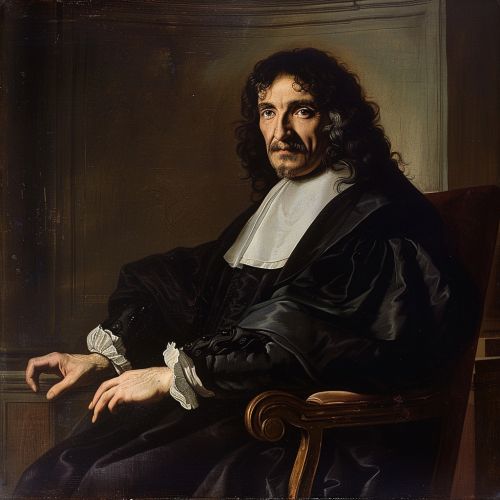Cartesian doubt
Introduction
Cartesian doubt is a systematic process of being skeptical about the truth of one's beliefs, which has been named after René Descartes, a noted French philosopher and mathematician. Descartes' method of doubt was designed to provide a certain foundation for scientific knowledge due to his belief that knowledge was built on the structure that a single, well-understood point could lead to further elaborations and understanding.


Concept
The concept of Cartesian doubt involves being skeptical about the truth of one's beliefs in order to determine which beliefs are absolutely certain. This method of doubt was used by Descartes to remove all beliefs that could be doubted, until he reached a foundational belief that was absolutely certain. He then used this foundational belief as the basis for building all other knowledge.
Methodology
Descartes' method of doubt involves the systematic doubting of all things until reaching something indubitable. This method involves three steps: doubting all sensory perception, doubting the existence of the physical world, and doubting the existence of self.
Doubting Sensory Perception
The first step in Cartesian doubt is to doubt all sensory perception. Descartes argued that our senses can deceive us, and therefore, any belief that is based on sensory perception can be doubted. This includes beliefs about the physical world, such as the belief that there is a table in front of you.
Doubting the Existence of the Physical World
The second step in Cartesian doubt is to doubt the existence of the physical world. Descartes argued that it is possible to doubt the existence of the physical world because we could be dreaming or deceived by an evil demon. Therefore, any belief that is based on the existence of the physical world can be doubted.
Doubting the Existence of Self
The third step in Cartesian doubt is to doubt the existence of self. Descartes argued that it is possible to doubt the existence of self because we could be deceived by an evil demon into believing that we exist when we do not. However, Descartes concluded that he could not doubt his own existence, because even if he is being deceived, he must exist in order to be deceived. This led to his famous statement, "Cogito, ergo sum" or "I think, therefore I am."
Implications
The implications of Cartesian doubt are profound and far-reaching. It challenges the very basis of our knowledge and forces us to question everything we believe to be true. This method of doubt has been influential in the development of modern philosophy and science, as it provides a rigorous method for questioning beliefs and seeking truth.
Criticisms
Despite its influence, Cartesian doubt has been subject to several criticisms. Some philosophers argue that it is impossible to doubt everything, as some beliefs are so fundamental that they cannot be doubted. Others argue that Cartesian doubt is self-defeating, as it relies on the very beliefs it seeks to doubt.
Conclusion
In conclusion, Cartesian doubt is a method of skepticism that involves doubting all beliefs until reaching something indubitable. This method has been influential in the development of modern philosophy and science, but it has also been subject to several criticisms.
